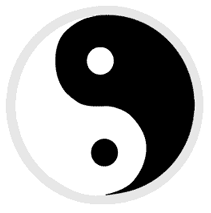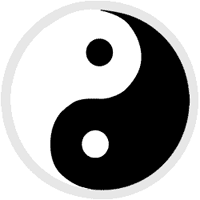



AlternativeMedicine
Acupuncture, Traditional Chinese Medicine, Herbs
New York Acupuncture Healthcare

Traditional Chinese Medicine (TCM)
At the core of this ancient medicine is the philosophy of Yin and Yang. Both Taoism and Confucianism have had a great influence over the development of medicine in China. One of the main tenets of Confucianism stresses that the body is holy, and must remain intact through life and into death.
Taoists, on the other hand, believe that the key to health is maintenance of balance between opposing forces in nature, symbolized most powerfully by Yin and Yang. The philosophy of Chinese medicine can be said to exist between these two philosophies: disharmony brings 'dis-ease', and a doctor can cure the patient through accurate observations of the external and emotional life of the patient.


Chinese medicine is the oldest, continuously practiced, professional, literate medicine in the world. Imperial schools, dating to about 300-400 AD, were created to ensure quality and consistency in the teaching of this medicine — a practice maintained by the Chinese government today. These schools practiced side-by-side with the apprenticeship system of learning medicine. By basing treatment on patterns (groupings of signs and symptoms) rather than by disease, Chinese medicine allows the practitioner to treat the whole person. This makes Chinese medicine the oldest 'holistic' medicine in the world with a history of more than 2,500 years.
The basis of this ancient medicine is the philosophy that Qi (pronounced "chee"), or life energy, flows throughout the body. Qi animates the body and protects it from illness, pain, and disease. A person's health is influenced by the quality, quantity, and balance of Qi. Chinese medicine produces almost no side effects in its treatment of illnesses. It can be used to treat many illnesses without surgery or drugs.
The World Health Organization recommends acupuncture and moxibustion for the treatment of over 40 types of illness. Acupuncture inserts thin needles into points of the body to help rebalance biological energies. The underlying belief in Traditional Chinese Medicine is that illness is an expression of an imbalance of physiological energies, whether engendered by external pathogens or internal stresses. Insertion of needles can rebalance these energies to help the patient regain health. Chinese medicinals are probably the most frequently prescribed method of treatment used in modern China, especially for complex, internal illnesses like autoimmune disorders, allergies, or mental-emotional disorders.